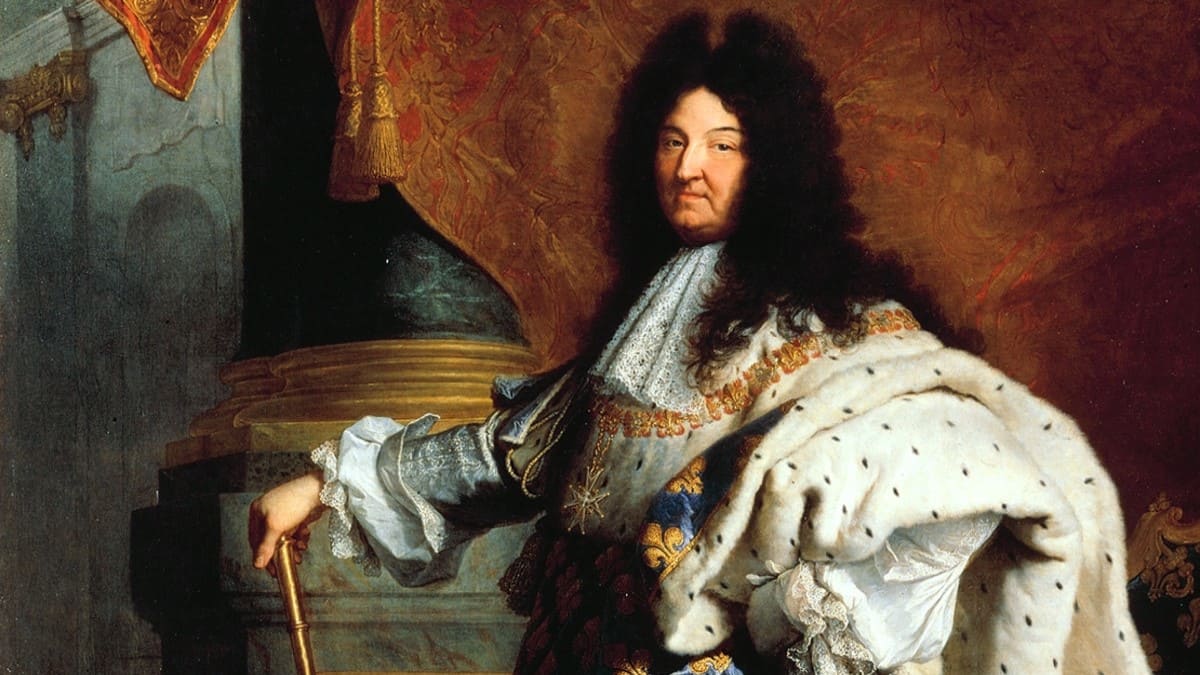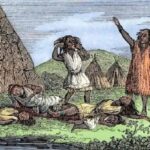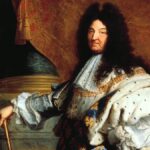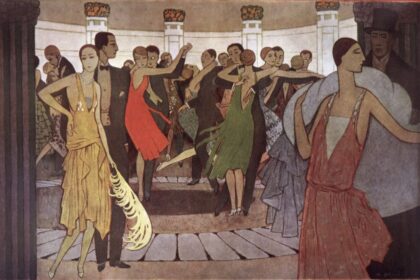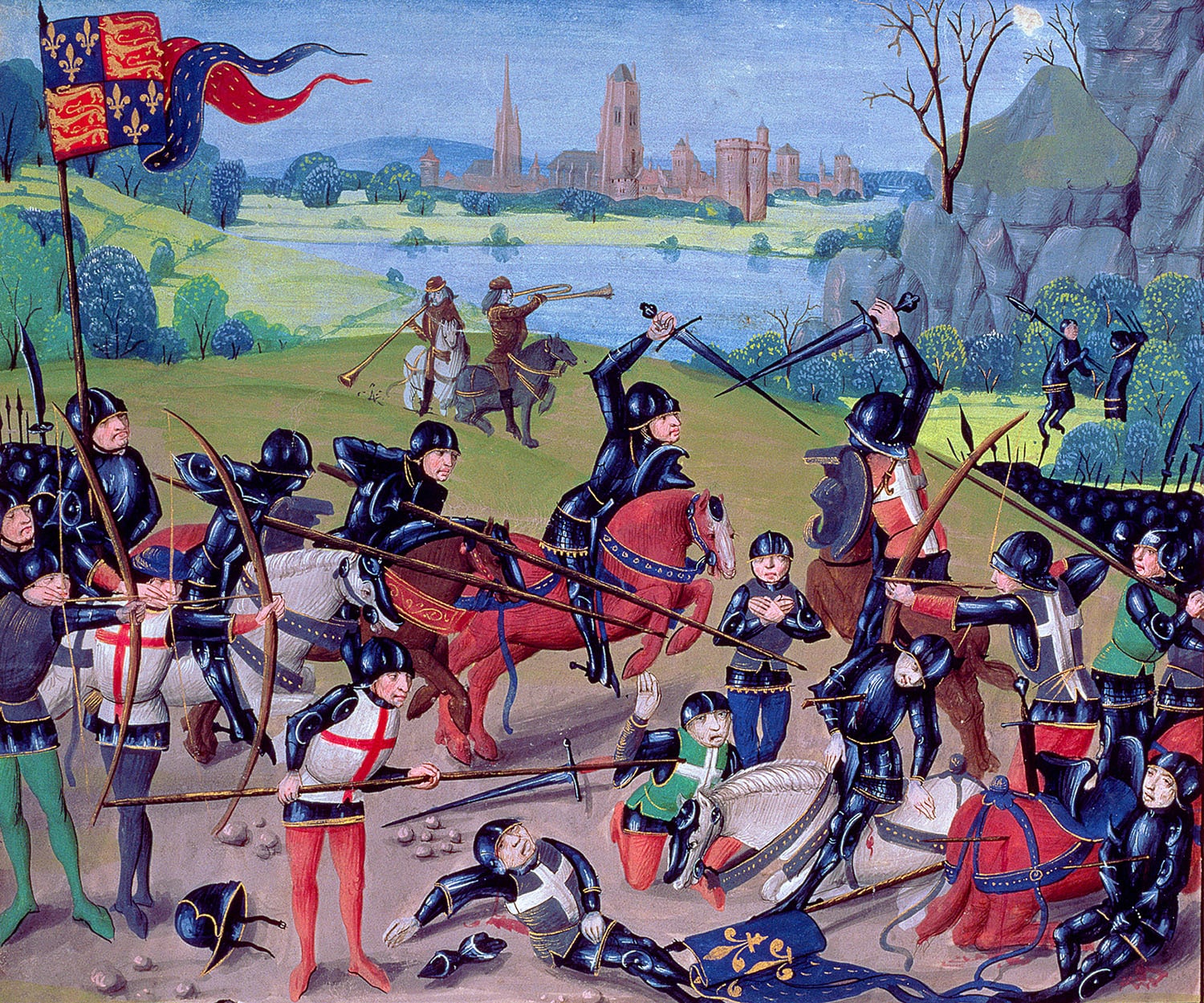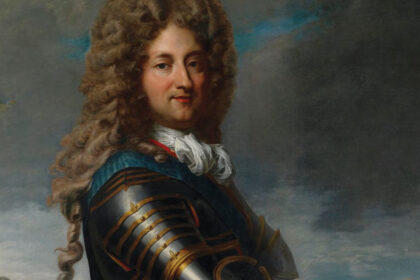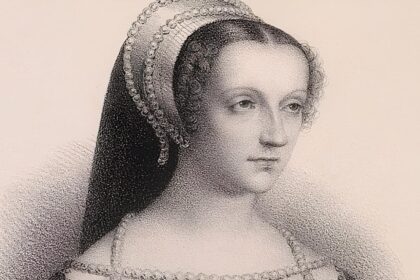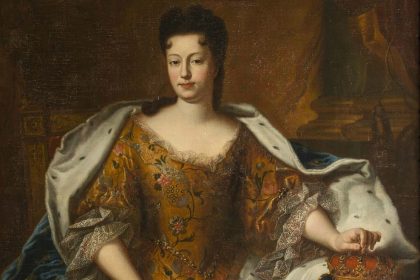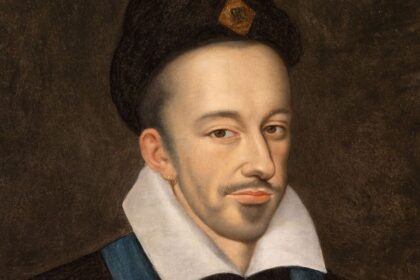The French palace awaited the news of the death of Cardinal Jules Mazarin, who was diagnosed with cancer in the first week of March 1661. This old man was the chief minister of the Australian Queen, Mother Anne, and was proclaimed regent. Mazarin had been the true ruler of France since 1643, when the five-year-old Louis XIV came to the throne.
How Did Louis XIV Begin to Rule France?
Then, for 18 years, Mazarin became King Louis‘ private teacher and friend. He ruled France with an iron fist and made the young King take over the royal authority in full. He allocated 5 million French francs for the King’s independent use to allow Louis to establish his ruling system.
On his deathbed, Mazarin made a final recommendation to Louis as an indicator of his political wisdom. He said it would be foolish to appoint a chief minister. Crying while talking to his old friend for the last time, Louis took this last lesson to heart. Mazarin died on March 9. Despite admitting that this was the most terrifying moment of his life, Louis acted like a man born and raised to be a king.
He ordered full mourning in the palace, whereas this was an unexpected order as this was generally only for members of the royal family. This order was also an indication that Louis was expecting full obedience from a 22-year-old boy who had never tried the art of governing a state.
The absolute monarchy of King Louis XIV
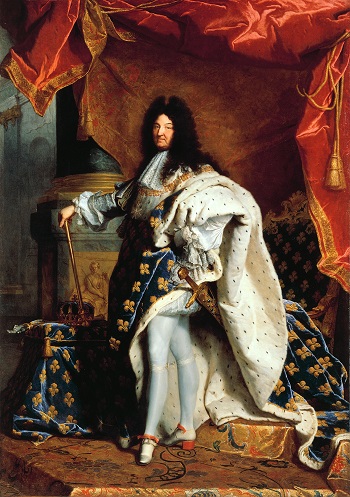
The next morning, King Louis summoned the ministers and stunned them by saying he was considering changing the French monarchy through the foundation. “It is now time for me to take over the reins of the administration. You will assist me with your advice when I ask for it.” In case the issue was not understood properly, he turned to Chancellor Pierre Seguier, whom everyone respects greatly, and said: “I request and command you, Mister Chancellor, to seal no orders except at my command and without having discussed them with me.“
When an official asked to whom he should report the order, the King replied, “Me.” This word would determine the fate of France over the next half-century. Louis XIV raised the absolute monarchy to the level that a king equipped with divine rights could have, as the chief minister Cardinal Mazarin taught him. All this coincided with a period when the divine claim of Charles I, from the other side of the English Channel, resulted in a civil war. And when he came back to power, the monarchy was much more restricted than before.
Non-noble people were appointed to important positions by Louis XIV, including Jean-Baptiste Colbert and diplomat Hugues de Lionne, who worked in almost all major government departments and was primarily responsible for economic matters. “It is important for my people to know the rank of those who serve me and realize that I do not intend to share my authority with them,” he said.
The most magnificent symbol of royalist absolutism was the palace Louis built in Versailles. Everything about its construction and decoration was carefully planned to draw attention to the King’s glory and magnificence. The long wings opening from the center building, which used to be his grandfather’s hunting castle, were planned to form an impressive courtyard that all visitors from Paris had to pass upon entering the complex. The garden designed by André le Notre would become famous throughout Europe.
The Versailles Palace
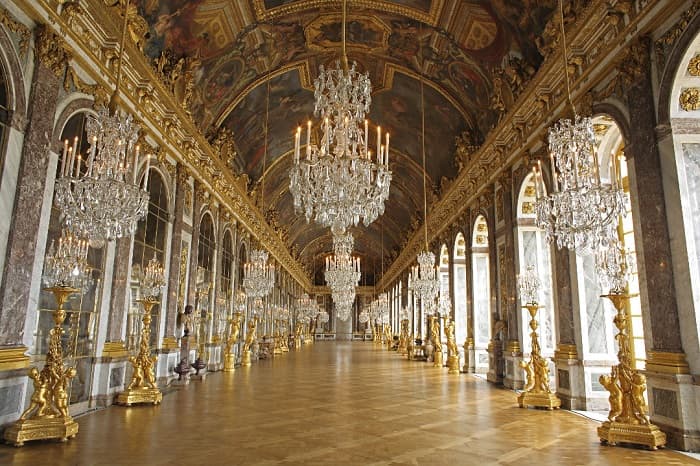
The Palace of Versailles was built by two architects named Jules Hardouin Mansart and Louis Le Vau. The building’s interiors were completed under the supervision of the famous painter Charles Le Brun. In 1682, the castle was ready for the transportation of a court of 25,000 people. Versailles has 700 rooms, 2,000 windows, 1,250 chimneys, and 67 staircases.
The etiquette inside the palace was made more polite and defined by strict principles that had not been seen until then. Daily work begins with the king’s “informal” awakening. The servants revolved around the “Sun King” like the planets that line up, and each woman and man would perform the role tailored to them.
At least 100 palace members were entering the king’s bedroom, one after another, in six groups on a social scale, each of which was at a lower level than before. The highest nobles watched the king get out of bed, and those who came last were happy to witness a small moment towards the end of the king’s dressing.
All these little ceremonies had an important political purpose. Louis wanted too much to get the attention of the aristocracy away from the intrigues in Paris. In Versailles, the nobility had become the obedient satellites of the monarchy and spent their days with luxury entertainment, such as hunting, feasts, and dances, that were endless and exhausting.
This strategy worked well. Throughout the next century, the nobility could not produce a leader who opposed royal rule. When Louis XIII was on the throne, resigning from a palace job was an indication of opposition. Similarly, getting removed from Versailles meant being dishonored. “Being away from you not only brings unhappiness but also makes me embarrassed,” a noble told the King.
The Divine Rights of the Kings
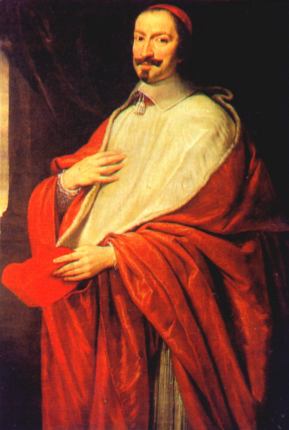
The French chief minister, Cardinal Mazarin, advised Louis XIV to support the belief that kings had divine rights as a reason to rule with absolute power. The roots of the doctrine of divine rights go back to the Middle Ages. At that time, the pope and the king were thought to be the deputies of God on earth, one of them being spiritual and the other being the most authoritative. According to this viewpoint, kings were only accountable to God for their actions; no one else could judge or oppose them.
Over time, a counterargument to the tradition that the king could only be crowned with the approval of the people and rule with the consent of the society that formed the kingdom arose. The struggle between these two contradictory ideas gave birth to unusual events throughout European history. What shows the measure of the royal authority in France is that between 1614 and 1789, not even a single French king set up a meeting with the Etats-Generaux, or the national assembly. Even the most important issues facing the state were only looked at by the king and the ministers he chose.
Some political structures that are very critical for France, such as the tolerance towards Huguenots (French Protestants) who are especially skilled in the textile trade, were destroyed by Louis XIV when he announced that he would repeal the 87-year-old Edict of Nantes in 1685. As a result, France lost thousands of important master craftsmen. These people immigrated to Britain and the Netherlands, France’s biggest trade rivals.
Why Did Louis XIV Move the Palace Out of Paris?

When Louis XIV was a little boy, he witnessed the bloody scene of the civil war known as the Fronde Rebellion in Paris, and during this period, Parliament played a prominent role in the fight against Cardinal Mazarin and his regency council. The winner of this civil war was the absolute monarchy, but Louis is said to have learned an important lesson from it: to reduce the influence of the Parliament in Paris by shifting the administration out of the capital.
This thought may have affected Louis’ decision to build a palace outside Paris. Louis wishes to have a monument built for the Bourbon Dynasty, which has never had a palace or castle symbolizing its power, and he wishes to express himself as Europe’s most powerful king through architecture. But Louis also loved Paris very much: Paris owes Louis the restoration of the Cathedral of Notre Dame, the extensive expansion of the Louvre Museum, the arrangement of the Champ-Elysees Boulevard, and the construction of the Hotel des Invalides. However, there was insufficient space in the capital for a palace of the size that the King envisioned; thus, in 1669, he directed that work begin on the new palace in Versailles, 22 kilometers southwest of Paris.
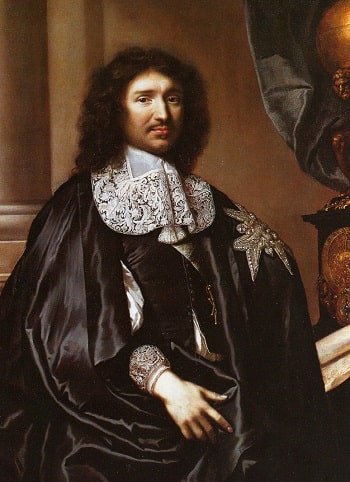
During the 1660s, King Louis XIV of France’s most trusted minister was Jean-Baptiste Colbert, the son of a cloth trader. With his reforms in industry and trade, he was able to supply the cash required for King’s foreign policy goals. He bolstered Louis’ authority, transforming France into Europe’s dominant power. Colbert thought that the world had finite resources and that a nation’s power and destiny depended on its ability to get them. The most effective approach to accomplishing this goal was to export as many manufactured items as possible. Colbert prohibited experts and skilled artisans from leaving the kingdom for this reason and offered foreign masters special advantages. However, only two years after Colbert’s death in 1683, the annulment of the Nantes Edict would result in the desertion of the nation by Protestant masters and artisans, destroying the primary good repercussions of Colbert’s wise economic policy.
How was Louis XIV’s foreign policy?

Louis XIV dreamed of France regaining its strength from the years of Charlemagne. In particular, he claimed that he was superior to the Habsburgs, who still ruled the world’s most powerful empire. Louis fought for glory for 40 years, but he did not achieve much. The War of Devolution began in 1667. After the death of his father-in-law, the King of Spain, Felipe IV, Louis claimed that his wife had a right over the Spanish Netherlands. France’s victory in the war forced Habsburg Emperor Leopold I to agree on the partition of the country with Louis when the King of Spain died. But Carlos II lived until 1700, and the treaty could not be fulfilled.
The Franco-Dutch War began with the invasion of the United Provinces by Louis XIV in 1672, when Louis saw the Calvinist Dutch Republic as an insult to its Catholic monarchy. France captured the Dutch cities; however, Leopold and Spain entered the war, and the invasion resulted in the Treaty of Nijmegen in 1679. Only the Franche-Comté region remained in France.
Louis followed an aggressive policy in Germany, which resulted in the Augsburg League opposition, established in 1686 by Saxony, Savoie, Brandenburg, Sweden, Spain, Bavaria, the United Provinces, and the Holy Roman-German Empire. Louis’s invasion of the Rhine-Pfalz started the War of the League of Augsburg, or the War of the Grand Alliance, in 1688. The war resulted in the Rijswijk Treaty in 1697. Louis’s only gain was Alsace.
The War of the Spanish Succession was Louis XIV‘s last major war, and it ended with great disappointment. The Duke of Marlborough received a victory at Blenheim in 1704, and this war ended the perception that France was invincible. With the Treaty of Utrecht in 1713, France had to leave the Newfoundland and Hudson Bay regions in Canada for England.
What was the legacy of Louis XIV?
When Louis XIV died in 1715, his grandson’s five-year-old son, Louis XV, took the throne. During the long reign of the young King, who ruled until his death in 1774, France’s power in Europe and overseas gradually decreased, while Britain gained more influence.
Louis XV was loved in the palace. He was handsome and friendly, but he was also lazy and had many mistresses, like his great-grandfather. He rarely participated in council discussions and was often undecided.
France was facing a crisis. As the bourgeoisie evolved, Louis XV’s discontent grew from not having a share in the country’s administration. While there was no strong leader to lead and direct national policies, the wars against England had put France in huge debt.
Louis XV tried to make reforms in the last four years of his reign. His grandson Louis XVI took the throne in 1774, but the country was already moving toward a revolution that would break out in 1789.
Quotes
“There is little that can withstand a man who can conquer himself.”
“I could sooner reconcile all Europe than two women.”
“The Pyrenees are no more.”
“Every time I appoint someone to a vacant position, I make a hundred unhappy and one ungrateful.”
“We can do all we wish while we live; afterward, we are less than the meanest.”
“My child, you are going to be a great king; do not imitate me in the taste I have had for building, or in that I have had for war; try, on the contrary, to be at peace with your neighbors.”
“It is impossible to please all the world.”
Bibliography:
- Antoine, Michel (1989). Louis XV (in French). Paris: Fayard. ISBN 978-2213022772.
- Durant, Will; Durant, Ariel (1963). The Story of Civilization. Vol. 8: The Age of Louis XIV. Boston: Simon & Schuster.
- Dvornik, Francis (1962). The Slavs in European History and Civilization. Rutgers University Press. ISBN 9780813507996.
- Edmunds, Martha (2002). Piety and Politics. University of Delaware Press. ISBN 0-87413-693-8.
- Edwards (2007). “Edict of Versailles (1787)”. In Fremont-Barnes, Gregory (ed.). Encyclopedia of the Age of Political Revolutions and New Ideologies, 1760-1815. Greenwood Publishing. ISBN 9780313049514.



